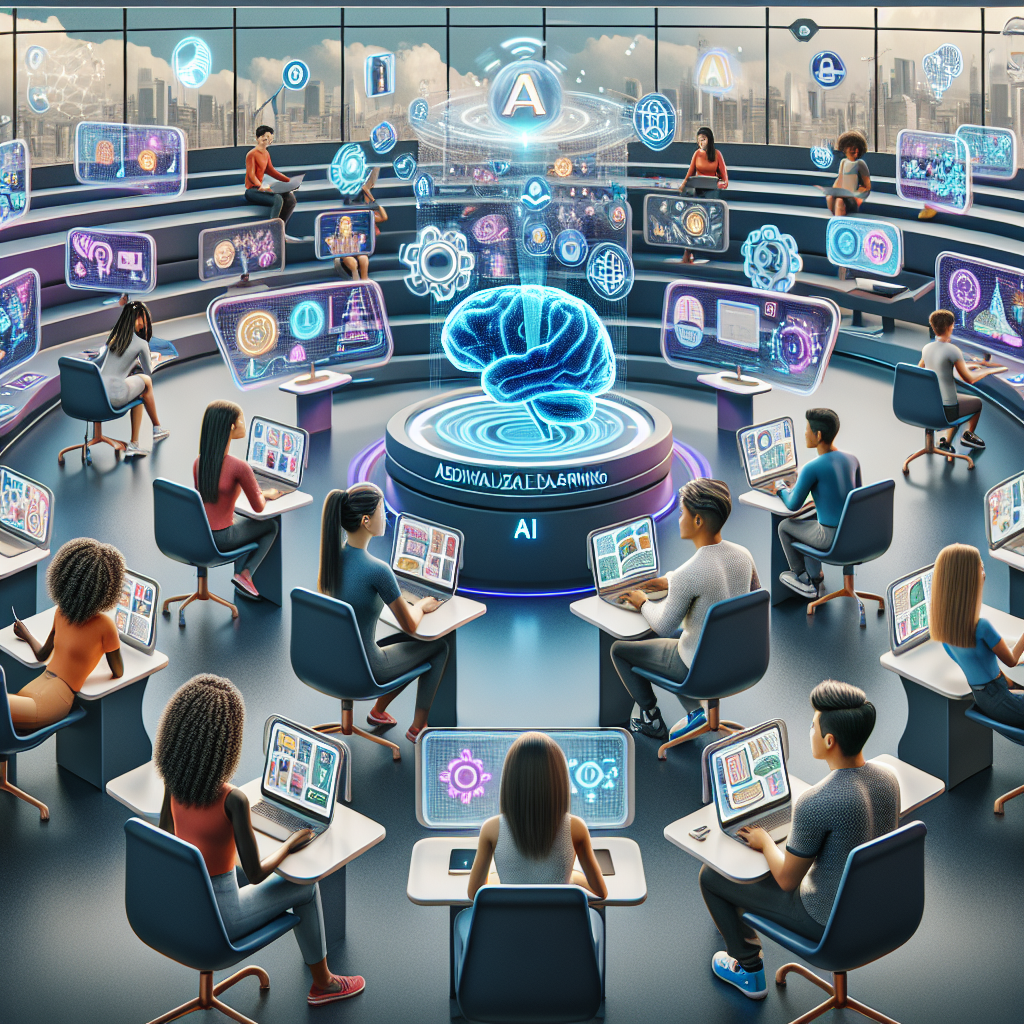Introduction
The educational landscape is rapidly transforming, driven by advancements in technology. One of the most exciting developments in this realm is personalized learning, especially through the integration of adaptive AI technology. This article explores the future of personalized learning, showcasing how AI is set to reshape the educational journey for students globally.
The Concept of Personalized Learning
Personalized learning is an educational approach that tailors instruction to meet individual students’ needs, preferences, and interests. Unlike traditional one-size-fits-all teaching methods, personalized learning acknowledges the uniqueness of each learner, allowing them to progress at their own pace. With adaptive AI technology, personalized learning is evolving into even more dynamic and effective systems.
Key Features of Personalized Learning
- Individualized Learning Paths: Students can follow customized paths that suit their learning styles and academic strengths.
- Flexibility: Learners can choose when and how they engage with learning materials, making education more accessible.
- Real-Time Feedback: Instant feedback mechanisms help students identify areas for improvement and adjust their learning strategies accordingly.
Understanding Adaptive AI Technology
Adaptive AI technology refers to systems that utilize artificial intelligence and machine learning algorithms to analyze user behavior and adapt content accordingly. In the context of education, adaptive AI can personalize learning experiences, enhance engagement, and drive better outcomes. Key components include:
How Adaptive AI Works
Adaptive AI works by gathering data on learners’ interactions and performances. This data includes:
- Engagement levels
- Response times
- Incorrect answers and misconceptions
By analyzing this information, the system can make informed decisions about the next steps for each student, dynamically adjusting the difficulty of tasks, introducing new concepts, and recommending resources tailored to personal needs.
The Benefits of Adaptive AI in Personalized Learning
Integrating adaptive AI technology into personalized learning offers a multitude of benefits:
Enhanced Learning Outcomes
Studies have shown that personalized learning powered by adaptive AI often leads to improved academic performance. Students are more engaged and motivated to learn, which significantly impacts retention and mastery of subjects.
Increased Engagement
Adaptive AI systems can create interactive and immersive learning experiences. By presenting content in a user-friendly format, students are more likely to engage deeply with the material, fostering a love of learning.
Scalability of Education
Adaptive AI technology can cater to large groups of learners simultaneously, providing each with a customized experience. This scalability means that personalized learning can be implemented in classrooms of any size, reaching diverse learners.
Challenges and Considerations
While the prospects of adaptive AI in personalized learning are promising, several challenges remain:
Data Privacy
The use of adaptive AI requires the collection and analysis of significant amounts of data, raising concerns about privacy and security. Educational institutions must prioritize data protection measures to build trust.
Equity in Access
To effectively implement adaptive AI technology, equitable access to devices and stable internet connections is essential. Efforts must be made to eliminate the digital divide and ensure all students can benefit.
Teacher Training
Educators must be adequately trained in using adaptive AI tools to maximize their potential. Professional development programs should be established to equip teachers with the knowledge and skills needed.
Future Trends in Personalized Learning with Adaptive AI
As technology continues to evolve, several trends are likely to shape the future of personalized learning:
Integration of Virtual and Augmented Reality
The incorporation of virtual and augmented reality into personalized learning experiences is on the rise. Students can immerse themselves in interactive environments, exploring subjects in a deeply engaging way.
Collaborative Learning with AI
Future adaptive AI systems may facilitate collaborative learning experiences where students can work together on projects while still receiving personalized support based on their individual needs.
AI-Powered Predictive Analytics
Predictive analytics will likely play a crucial role in anticipating student needs, identifying at-risk learners, and providing timely interventions, thereby improving student success rates.
Conclusion
The future of personalized learning with adaptive AI technology holds immense potential for transforming education. By balancing innovation with ethical considerations, we can embrace a more tailored educational approach that caters to the unique needs of each learner, ultimately fostering a more fruitful and engaging learning environment. With continued advancements, personalized learning powered by adaptive AI is set to redefine how we teach and learn, benefiting learners across the globe.

